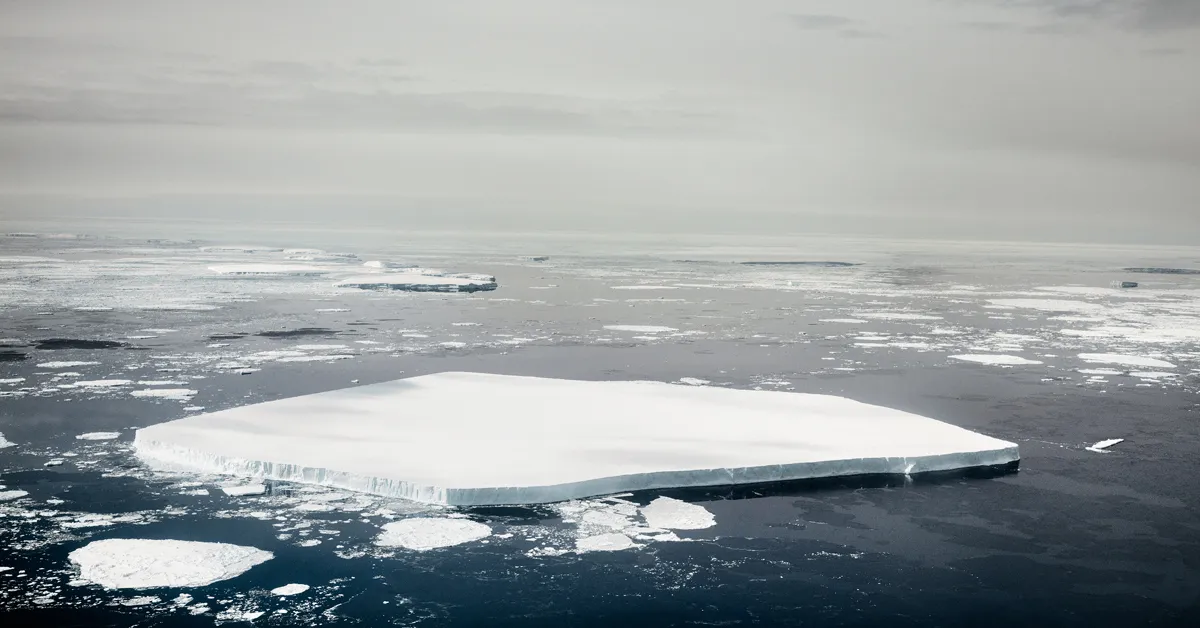As global temperatures continue to rise, the Antarctic region is grappling with a distressing reality – its sea ice has hit a record low this year. Experts warn that the damage caused by this unprecedented decline is irreversible, further underscoring the urgent need to address the ramifications of climate change on this delicate ecosystem.
A recent study, featured in the journal Frontiers in Environmental Science, has shed light on the concerning trend. The study reveals that the continent’s minimum summer ice cover, which dipped below 2 million square kilometers (772,000 square miles) in the previous year – marking a historic departure since satellite monitoring commenced in 1978 – has faced further depletion, reaching an all-time low in February.
One of the study’s co-authors, Professor Anna Hogg from the University of Leeds, offered a sobering perspective on the situation. She remarked, “It’s going to take decades if not centuries for these things to recover. There’s no quick fix to replacing this ice,” referring to the melting icebergs and shelves that have been a significant casualty of the changing climate. Hogg emphasized the complex and protracted nature of the recovery process, even if the possibility of restoration remains.
Tim Naish, who directs the Antarctic Research Centre at Victoria University of Wellington in New Zealand, drew attention to the gravity of the sea ice decline. Naish revealed that this year’s sea ice minimum is a staggering 20% below the four-decade average, equivalent to a loss nearly ten times the size of New Zealand. He cautioned that the current trajectory could lead to the crossing of critical tipping points, resulting in irreversible consequences for future generations.
The study’s findings suggest that Antarctica’s susceptibility to extreme events has intensified due to global warming, a phenomenon driven by the persistent utilization of fossil fuels. Regrettably, the research predicts that this impact is poised to exacerbate, aggravating the ongoing crisis in the region.
Drawing on contemporary data encompassing various aspects of the Antarctic environment – including ocean, atmosphere, cryosphere, and biosphere – the study forewarns of an escalation in the size and frequency of heatwaves, ice shelf collapses, and the continued loss of sea ice. The report offers a sobering outlook for the future, emphasizing the urgent need for comprehensive and coordinated efforts to mitigate the escalating consequences of climate change in Antarctica.




